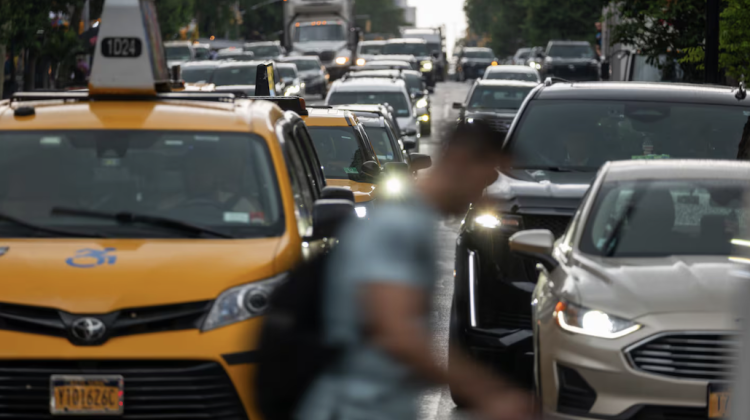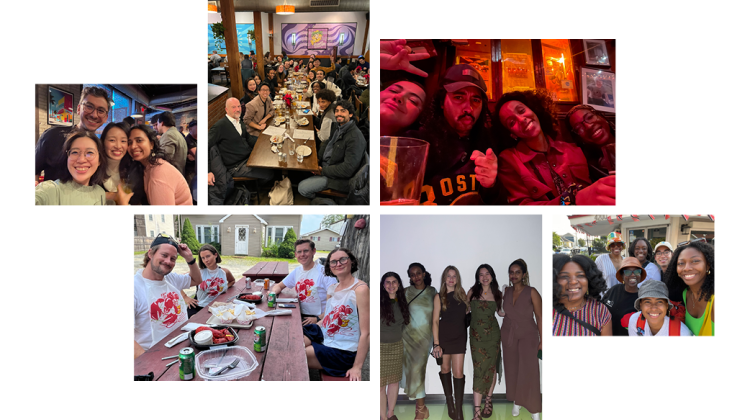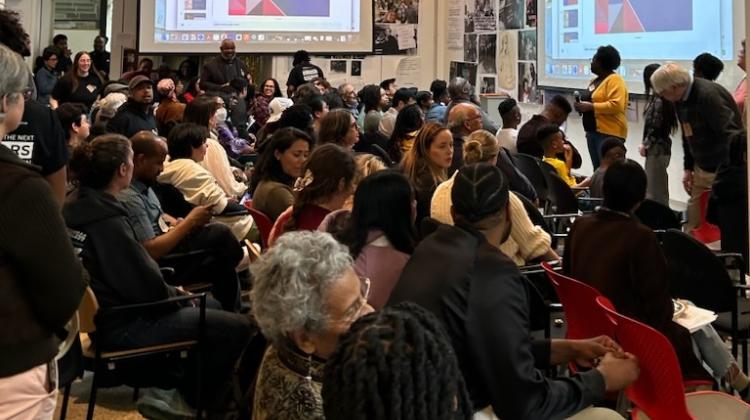Mobility
We leverage cross-disciplinary efforts, systems thinking, and public and private sector partnerships to drive innovation forward and to accelerate the transformation to a mobility system that is safe, clean and inclusive. Learn more about the MIT mobility ecosystem via the MIT Mobility Initiative.
Overview
The global mobility system is undergoing profound transformation. An unprecedented combination of new data and technologies (autonomy, electrification, and AI) is colliding with new and evolving priorities and objectives (decarbonization, public health, and social justice). And the timeframe for these changes – decarbonization in particular – is short in a system with massive amounts of fixed, long-life assets and entrenched behaviors and cultures.
The MIT Mobility Initiative (MMI) was founded as a global resource to accelerate the transformation to a mobility system that is safe, clean and inclusive. In addition to on-going research in a number of fields, the Initiative is home to the Institute’s cross-disciplinary graduate program in transportation, which provides graduate degrees for students interested in transportation studies and research. Students choose from a wide range of introductory and advanced subjects related to transportation and engage with real-world projects and challenges to build an education that prepares them to be the leaders of tomorrow’s transportation system.
People
Jim Aloisi
 Lecturer of Transportation Policy and Planning
Lecturer of Transportation Policy and PlanningRounaq Basu
 Postdoctoral Associate
Postdoctoral AssociateEran Ben-Joseph
 Professor of Landscape Architecture and Urban Planning
Professor of Landscape Architecture and Urban PlanningMikel Berra Sandin
 MCP Student
MCP StudentFabio Duarte
 Associate Director (Senseable City Lab) + Lecturer of Technology and Urban Planning
Associate Director (Senseable City Lab) + Lecturer of Technology and Urban PlanningSarafina Fabris-Green
MCP StudentYichun Fan
 Doctoral Candidate
Doctoral CandidateJoseph Ferreira
 Professor, Post-Tenure
Professor, Post-TenureSonghua Hu
 Postdoc, SCL
Postdoc, SCLJason Jackson
Associate Professor in Political Economy and Urban PlanningSara Jex
 MCP Student
MCP StudentSeamus Joyce-Johnson
 MCP/MST Student
MCP/MST StudentLiu Liu
 Doctoral Candidate
Doctoral CandidateYifeng Liu
 Master Student @ DUSP & EECS
Master Student @ DUSP & EECSSadegh (Sadi) Sabouri
 Postdoctoral Associate
Postdoctoral AssociateAndrew Salzberg
Lecturer of Urban Mobility and SustainabilityAndres Sevtsuk
 Associate Professor of Urban Science and Planning
Associate Professor of Urban Science and PlanningRongxiang Su
Postdoc, SCLFreya Tan
MCP StudentHanyong Xu
 Doctoral Student
Doctoral StudentNiaz Mahmud Zafri
 Doctoral Student
Doctoral StudentChris Zegras
 Professor of Mobility and Urban Planning, Department Head
Professor of Mobility and Urban Planning, Department HeadJinhua Zhao
 Professor of Cities and Transportation
Professor of Cities and TransportationSiqi Zheng
 Professor of Urban and Real Estate Sustainability
Professor of Urban and Real Estate Sustainability
Areas of Study
Systems & Operations
MIT faculty lead the way in network and systems analyses, often applying newly developed methods to transportation problems. Transportation is inherently a complex system, requiring an array of tools and methodologies to explore its constituent parts. Mobility Initiative faculty members approach the analysis of key areas such as autonomy, connectivity, multimodal integration, electrification, and more with a systems lens in order to design efficient & robust systems and networks.
Analytics & Computation
Data is helping to transform the global transportation system. New sensors, methodologies, and other technologies have offered new ways of increasing operational efficiency, flexibility, sustainability, safety and more. MIT researchers are investigating new ways of storing, analyzing, and synthesizing this data to enable informed decisions by transportation operators and policy makers.
Planning, Policy & Institutions
MIT's top ranked city planning program is training the next generation of transportation planners and policy makers. Urban mobility is shaped by political decisions and land-use patterns. Researchers and students are investigating these relationships and creating new planning tools to promote a sustainable, equitable future. Active student projects range from transit-oriented development policies for cities to mobility solutions for informal settlements.

















